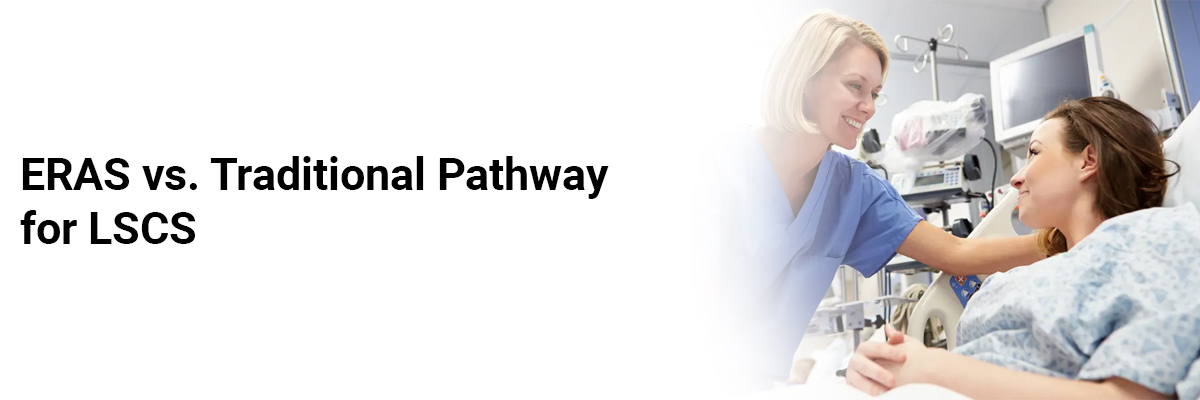
 IJCP Editorial Team
IJCP Editorial Team
ERAS vs. Traditional Pathway for LSCS
Enhanced Recovery After Surgery (ERAS) is a well-established evidence-based management protocol for perioperative care that aims to expedite patient recovery. However, the implementation of ERAS in obstetrics, particularly for Cesarean sections (CS), has been relatively slow, and there is limited literature available on this topic from the Indian population.
A recent prospective non-randomized comparative clinical study included 190 pregnant patients. Out of these, 95 patients underwent the ERAS protocol (Group 1), while the remaining 95 cases followed the existing traditional protocol (Group 2) for elective LSCS. The study sought to assess and compare the quality of recovery between the two groups using the obstetric-specific QoR 11 questionnaire. Additionally, the study examined various perioperative outcomes such as bleeding during the procedure, initiation and difficulties with breastfeeding, time to the first oral intake, ambulation attempts, decatheterization, surgical site infection rates, and length of hospital stay.
The study observed-
- Significantly higher mean QoR score for patients in the ERAC group, 24 h postoperatively.
- 50.5% of the mothers initiated breastfeeding within the first hour in the ERAC group.
- Postoperatively significantly lower mean duration to start oral intake in the ERAC group.
- Ambulation and decatheterization were attempted within six hours postoperatively in 86.3% of the women in the ERAC group.
- The significantly lower mean length of hospital stays for patients in the ERAC group.
Hence, implementing the ERAC (Enhanced Recovery After Cesarean) protocol in cesarean delivery has demonstrated significant improvements in both the quality of recovery and the length of hospital stay.
Jakhetiya B, Dhakre PC, Chaudhary D. et al. Clinical Outcome in Patient Undergoing LSCS via ERAS Pathway versus Traditional Pathway: A Prospective Observational Study. J ObstetGynecol India. 2023;73:214–222. https://doi.org/10.1007/s13224-022-01732-w

IJCP Editorial Team
Comprising seasoned professionals and experts from the medical field, the IJCP editorial team is dedicated to delivering timely and accurate content and thriving to provide attention-grabbing information for the readers. What sets them apart are their diverse expertise, spanning academia, research, and clinical practice, and their dedication to upholding the highest standards of quality and integrity. With a wealth of experience and a commitment to excellence, the IJCP editorial team strives to provide valuable perspectives, the latest trends, and in-depth analyses across various medical domains, all in a way that keeps you interested and engaged.





















Please login to comment on this article